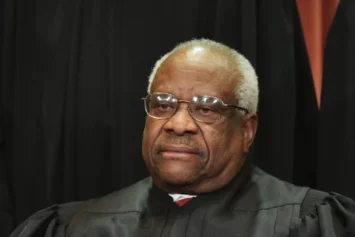
The season of giving won’t be giving as many savings for many consumers.
This will have a big impact on Black families, who are extremely committed to travel on the holidays, in addition to big holiday meals.
Just as soon as consumers started celebrating gas prices dropping down below $3 for the first time in roughly four years, they were disappointed to see that those lower fuel prices weren’t reflected in lowered costs for groceries or airfare.
For low- and middle-income Americans, many of whom have only received very modern wage increases since 2009, they were disappointed to see costs continue to rise faster than their wages.
Meanwhile, a spike in food prices has drastically overshadowed their savings at the pump.
Food prices are predicted to rise an entire percentage point from 2.5 percent to 3.5 percent this year, according to the U.S. Department of Agriculture.
With much of the increase in prices happening around the holiday season, consumers are expected to spend much less on food despite the fact that they will be saving money on gas.
“People talk about gasoline prices but you can’t look at them in isolation,” said Craig Johnson, head of consultancy firm Customer Growth Partners (CGP), according to Reuters. “We think the psychological effect of record food inflation, because it’s a bigger part of the family budget, is a key behavioral driver here.”
Based on predictions about consumer behavior, CGP believes holiday spending will see a relatively small increase compared to previous years.
While past years saw an increase of more than 4 percent in food sales during the holidays, this year’s forecast is only predicting a 3.4 percent increase in sales.
Those numbers would equate to roughly $10 billion in consumer spending for the months of November and December alone.
It is important to remember that not everyone will even reap the savings from lower gas prices, but everyone is affected by rising food prices.
As economist Chris Christopher pointed out to Reuters, “Remember everyone eats, but not everyone drives a car.” He was specifically referring to low-income Americans.

Airlines saved a lot on costs as well, thanks to the lower fuel prices, but the savings didn’t seem to matter when it came to ticket prices.
The airline industry saved $1.6 billion in fuel costs over the past year but airfares have increase drastically over that same period of time with expectations that prices will continue to rise throughout the holiday months, according to AAA, which was formerly known as the American Automobile Association.
While spending for food is expected to decrease during this holiday season, airlines will actually be bringing in more money.
When it comes to food, families can simply decide to cut back on a few products. For the families who wishes to be with distant loved ones for the holiday, however, they will be forced to dish out more money for airlines tickets.
This year more than 46 million Americans will be traveling more than 50 miles from November 26 to November 30.
Only about 10 percent of those Americans will be opting out of traveling by car, but even then the numbers are much larger than they were in previous years.
Air travel for Thanksgiving is actually projected to hit an unusual high with 3.55 million Americans trying to board flights for the holidays.
This is the greatest amount of Americans to travel by flight over the holidays since 2007.


